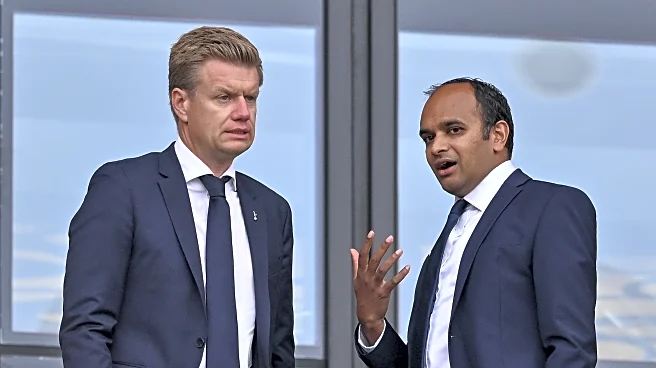What's Happening?
In Indonesia, public protests have reignited following a recent increase in recess allowances for lawmakers. The new allowance, set at 702 million rupiah ($42,400), nearly doubles the previous amount of 400 million rupiah. This decision comes weeks after widespread demonstrations against a $3,000 monthly housing allowance for lawmakers, which was nearly ten times the minimum wage in Jakarta. The protests initially focused on the housing allowance but expanded to address broader issues of corruption and economic inequality in the country. The deputy house speaker stated that the increase is intended to support lawmakers during their recesses, considering rising food and transport costs. Despite efforts to justify the hike, public anger persists, fueled by perceptions of impunity among the political elite.
Why It's Important?
The increase in allowances for Indonesian lawmakers highlights ongoing concerns about economic inequality and governance in the country. The protests reflect widespread dissatisfaction with the perceived privileges of the political elite, which many citizens view as disconnected from the economic realities faced by the general population. This situation underscores the challenges of addressing public grievances in a nation grappling with economic disparity. The protests could influence future policy decisions and impact the political landscape, as citizens demand greater accountability and transparency from their leaders. The government's response to these protests may set a precedent for how similar issues are handled in the future.
What's Next?
In response to the protests, the Indonesian House of Representatives plans to release a publicly accessible app for lawmakers to report their expenditure of recess funds, allowing citizens to monitor spending. This move aims to increase transparency and accountability, potentially easing public discontent. However, the effectiveness of this measure in quelling protests remains uncertain. Continued public scrutiny and pressure may lead to further policy adjustments or reforms. The situation could also prompt discussions on broader economic and governance reforms, as citizens push for more equitable distribution of resources and fair representation.
Beyond the Headlines
The protests in Indonesia highlight deeper issues of trust and accountability within the country's political system. The perception of impunity among lawmakers raises ethical questions about governance and the role of public servants. This situation may lead to long-term shifts in public expectations and demands for political reform. Additionally, the protests could inspire similar movements in other countries facing economic inequality and governance challenges, emphasizing the global relevance of these issues.










